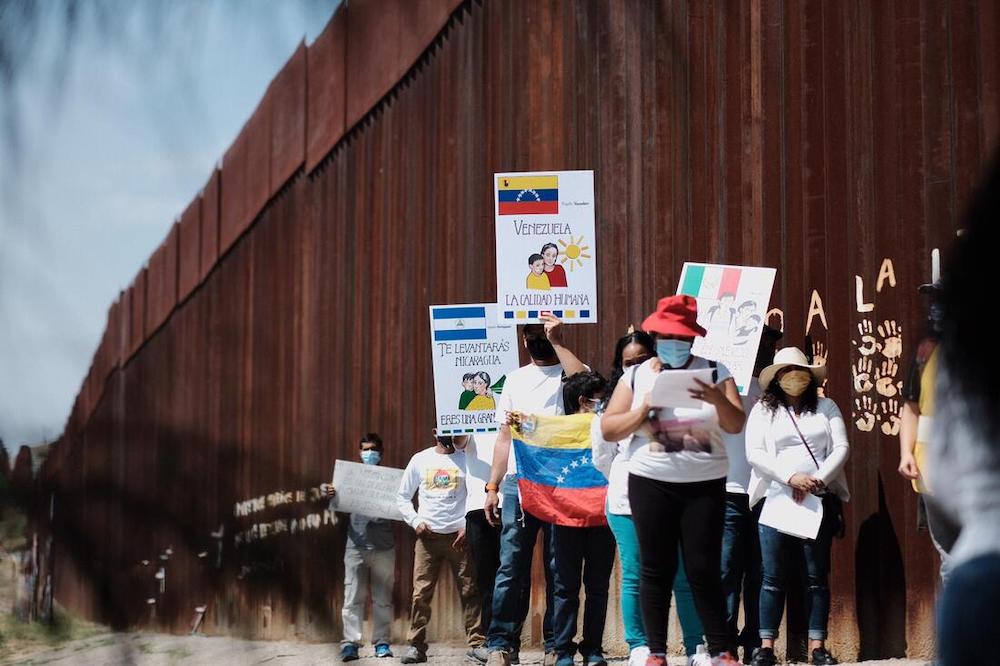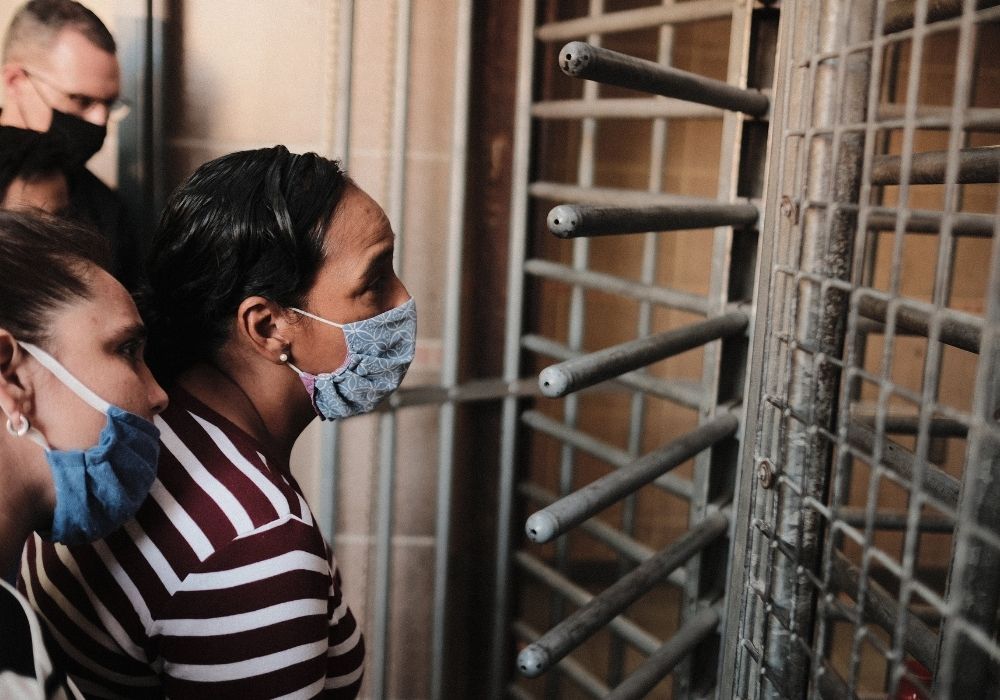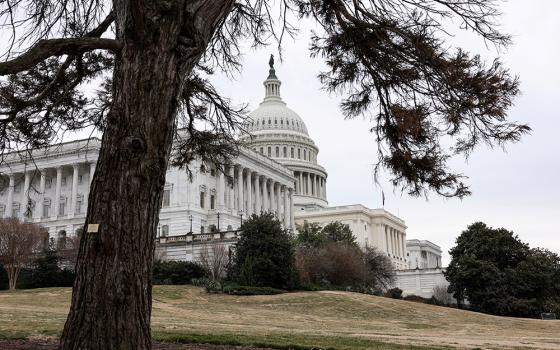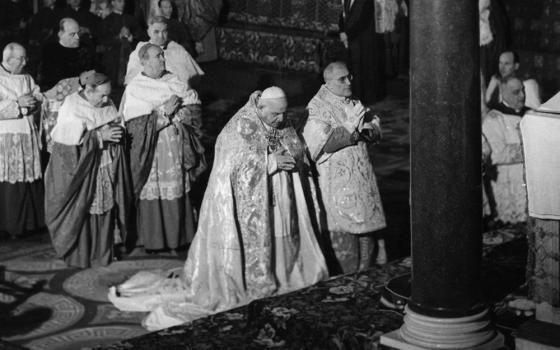
Asylum seekers from Mexico, Cuba, Venezuela and Honduras share their stories at the #SaveAsylum protest August 21 in Nogales, Sonora, Mexico (Kino Border Initiative)
Over the past week, I have grappled with a deep sadness and anger about the St. Louis Archdiocese's decision to put justice advocate Marie Kenyon on administrative leave and suspend the archdiocese's Immigration Task Force as well as its Peace and Justice Commission as a result of an interfaith webinar the task force hosted to educate voters about migration. This, at a time when I'm watching migrants count the months, and in some cases years, they wait for justice at the Mexico-U.S. border after fleeing persecution with their families.
As I've combed through the details about Archbishop Mitchell Rozanski's decision, just a month after being installed in a new diocese, questions swirl through my mind. What message are these decisions sending migrants and refugees in the St. Louis area? In the end, who will be served or hurt by these actions? After dismantling a group tasked with putting the rights of migrants front and center, how will Rozanski carry out the mandate from U.S. and Mexican bishops contained in the 2003 pastoral letter "Strangers No Longer: Together on a Journey of Hope," which encourages bishops to "lead the priests, deacons, religious and faithful in promoting justice and in denouncing injustice towards migrants and immigrants, courageously defending their basic human rights?"
Advertisement
In a dominant culture of greed and exclusion, a courageous solidarity will cost us. For some like Kenyon, it already has. But we must consider: What will it cost us not to be courageous in this moment?
As I read comments from other social justice advocates involved in the Immigration Task Force, I am struck by their love for a church whose social teaching both grounds them and moves them to stand alongside the most vulnerable. I am also struck by the contemplative tone of their responses — words of hope and prayer that they can find reconciliation with church leaders who have hurt them.
Sadly, this is not the first time the Catholic hierarchy has worked to silence people who stood on the side of the marginalized or who worked to move the Catholic Church forward in its thinking given the signs of the times. Nor, I imagine, will it be the last. Strangely there is something normalizing and comforting for me in realizing this.
I first came to this realization years ago when I read the book Faithful Dissenters: Stories of Men and Women who Loved and Changed the Church by Robert McClory, which compiles the stories of numerous characters who made "good trouble" for the eventual betterment of the Catholic Church, but who were seen as rabble rousers in their day. The list includes Catherine of Sienna, Matteo Ricci, Hildegard of Bingen, and my congregation's very own St. Mother Theodore Guerin. Many of these "faithful dissenters" were persecuted or dismissed during their lifetimes. They never lived to see the day when their prophetic voices would bring about a new vision in the church they loved so deeply. And yet they persisted. I imagine the same will be true for some of our modern-day prophets like Kenyon.

Migrants approach the port of entry in downtown Nogales, Sonora to request asylum with Kino Border Initiative Executive Director, Jesuit Fr. Sean Carroll. (Kino Border Initiative)
These voices and these moments of pain and tension invite us to ask important questions about what it means to be Catholic — truly Catholic — in these times when so many are suffering without solace. During a recent phone call, my friend bemoaned an uncomfortable exchange with someone at her work she characterized as "really Catholic." I stopped her. "Can you explain to me what you mean by really Catholic?" She responded that this person was a rule follower and "super traditional." I told her that I was confused by her characterization of the person because to me, being really Catholic would mean following Jesus. Really following Jesus. I mean, to the cross — to public execution by the state. The same Jesus we know was a rule-breaker and created chaos in the temple, the same Jesus who spent time with the outcasts of his day and was a pain in the neck for formal church authorities.
It's up to us as the people of God, together with the Holy Spirit and the legacy of the many prophets and faithful dissenters who shape us, to show the world what it means to be Catholic. Really Catholic.
[Tracey Horan is a member of the Sisters of Providence of St. Mary-of-the-Woods, Indiana. She is the education coordinator at the Kino Border Initiative in Nogales, Arizona, and Sonora, Mexico.]






